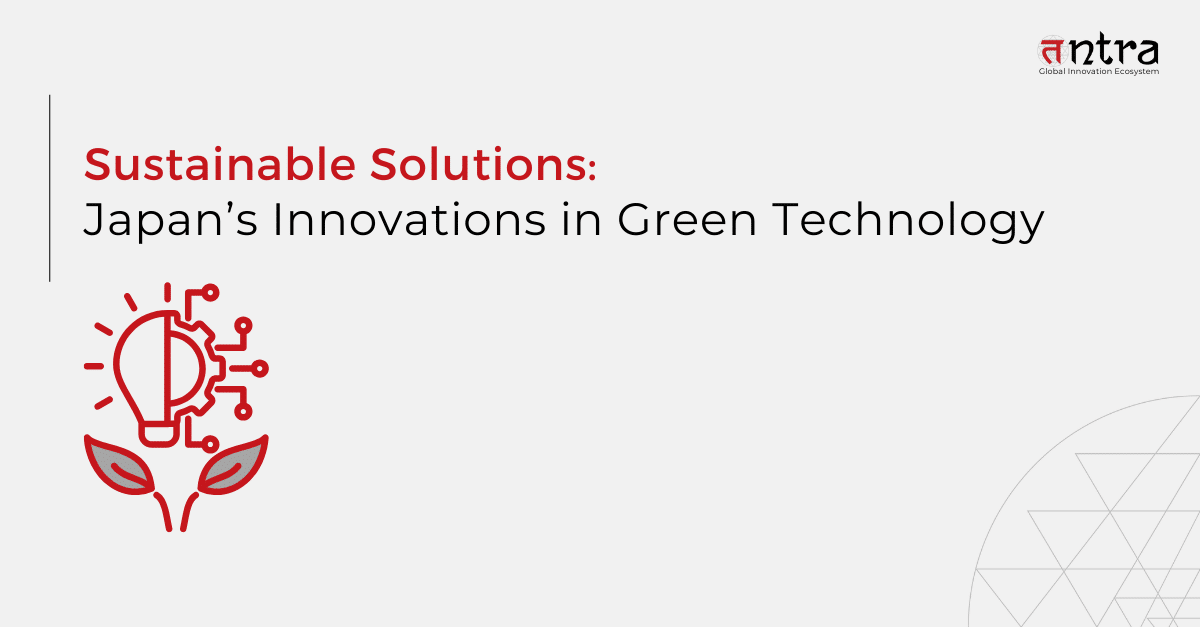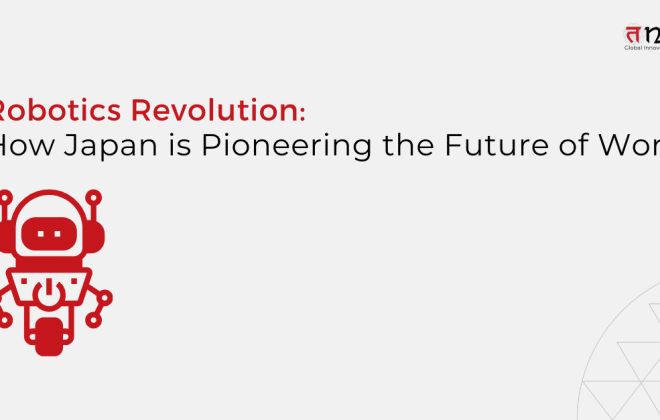
Sustainable Solutions: Japan’s Innovations in Green Technology
Table of Contents
ToggleJapan is a leader in environmentally friendly technology, employing automation and artificial intelligence to cut manufacturing waste and pollution. Through investments and incentives, the government’s Green Transformation initiative supports clean energy. Japan leads the world in hybrid cars, but there is competition in electric cars as well. Overall, Japan’s emphasis on “green tech” puts it in a strong position for post-pandemic recovery and international sustainability cooperation. Read more to know how green technology is shaping Japan’s progress.
The Japanese government has reaffirmed its strong commitment to Japan green technology, sustainability, promising to achieve carbon neutrality by 2050 and to contribute zero plastic trash to the oceans. The nation already leads the world in the production of bioplastics and hydrogen energy. In 2009, a team of researchers from a Japanese university discovered that some crystalline minerals known as perovskites have the ability to convert light into a voltage, which could lead to the development of new transparent solar cell types.
Today’s commercial solar technology focuses on rooftop silicon photovoltaic (PV) cells. However, Yukihiro Kaneko, who oversees Panasonic Group’s perovskite PV operations in Osaka, Japan, notes that although silicon photovoltaics (PV) has many good qualities, its application on transparent surfaces, like windows, is limited by the solid, opaque layers of silicon the cells require.
Perovskites, one of the prime sustainable solutions examples, are formed by ink-like materials that are able to be finely printed on glass, sometimes as transparent or tinted composites. On high rise structures, a building’s vertical plane, often composed of windows, can far exceed the area available on rooftops for solar power light capture. If perovskite cells can be incorporated into windows and walls, it could dramatically increase the energy that urban areas can generate, says Kaneko.
Green Technology Landscape in Japan
Japan plans to become carbon neutral by 2050 in addition to reducing its greenhouse gas emissions by 46% till 2030. The nation must utilize more renewable energy technologies, sustainable solutions, and other energy-efficient measures in order to meet these climate targets. It is imperative that environmental technology is developed and incorporated into daily life. Due to the growing relevance of this sector, numbers for research expenses have seen a growth in recent years.
Japan has shown its commitment to promoting environmental transformation and spearheading the worldwide shift towards a sustainable future by giving $36.8 million to help the ‘Green Transformation’ in four Pacific Island nations.
The size of the Japan green technology and sustainability market is anticipated to increase at a 19.20% (CAGR) from 2024 to 2032. The market is being driven by several major factors, including the growth of circular economy practices, growing support from governmental authorities to improve environmental health, and growing awareness and concern about environmental and social responsibility among individuals and businesses.
How Green Technology is Contributing to Japan’s Progress
Japan’s green innovation and AI solutions are a major driver behind the environmental transformation, as the world is under pressure to address climate change and cut greenhouse gas emissions. The need for businesses of all stripes to embrace sustainable practices through software product engineering solutions and attain carbon neutrality is growing, with manufacturing, retail, and supply chains receiving special attention.
In the manufacturing industry, by utilizing modern automation and digital technologies to optimize industrial processes, Green Transformation (Green IT and AI) can lower waste and offer clean energy. Intelligent sensor and Internet of Things (IoT) device implementation can also aid in equipment usage monitoring and control, resulting in more effective energy management and reduced emissions. Siemens is a prime example of this. Since 2014, the multinational technology giant has cut carbon emissions by 54% by utilizing these technologies to manage energy more effectively and progress towards the goal of carbon neutrality. Another illustration is General Motors, which has significantly lessened its environmental effect by implementing landfill-free manufacturing techniques and increasing the use of renewable energy sources.
With its enormous technological and economic ramifications, Japan’s GX Initiative has the ability to spur long-term innovation and progress in the nation. One example of how the government is promoting a market that is favorable to clean energy transitions is through subsidies for buying electric vehicles and investing in carbon capture technologies. Japan aims to promote industry transformation and technological advancement by dedicating significant funding to these sectors. This is in line with international efforts to reduce carbon emissions and establishes Japan as a strong competitor in the rapidly expanding green technology industry.
With vehicles like the Toyota, Japanese automakers have been at the forefront of hybrid vehicle technology for many years. However, there is a shift away from hybrids to electric vehicles due to advancements in battery technology and government intentions to phase out petrol-powered cars entirely, making Japan’s place in the EV industry uncertain.
The nation claims to want to phase out petrol and diesel vehicles by the middle of the 1930s, but it hasn’t made a significant transition to fully electric vehicles (BEVs). As a result, many are worried that the country’s car industry, which focuses primarily on producing hybrid cars, won’t be able to compete with other players in the market, like China.
Conclusion
The core of the Japanese government’s approach is striking a balance between economic growth and innovatively addressing social problems. The strategy is consistent with recent global appeals for lean and green manufacturing to increase resilience in the post-Covid era, leading to an increasing demand for software product engineering services.
Japanese technology can pave the way for post-Covid-19 recovery with its advanced air purifiers, water filtration systems, facial recognition software, robotics, automation, and health tech solutions like AI-driven medical inquiries and surgical robots.
Japan has a long history of being particularly resilient to the shocks of nature thanks to its tech with soul. The good news is that the nation is eager to impart its vast knowledge to the rest of the globe so that together, we can rebuild the planet.
The growing demand for green technology calls for an expert software development company in Japan that can optimize processes for businesses and assist in bringing a change. Tntra is a leader in the Japanese market when it comes to technology and software integrations and development. With our 100+ domain experts and engineers, you can build the future with high-quality green technology solutions.
Schedule a FREE CONSULTATION call today!





